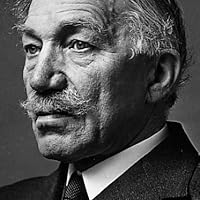Vengance Quotes
Quotes tagged as "vengance"
Showing 1-10 of 10

“Anger, resentment and jealousy doesn't change the heart of others-- it only changes yours.”
― 300 Questions to Ask Your Parents Before It's Too Late
― 300 Questions to Ask Your Parents Before It's Too Late
“Vengeance is primitive; which is why only two species in the universe practice it: humans and animals.”
―
―

“ان حياتي لن تكون ابدا في المغرب.
مع انني احب وطني بعمق ... احب ارضه و تاريخه...احب لغته و تقاليده.
احب شعبه المستضعف المقهور...لكنه متعال و شامخ على مر العصور
ليس بيني و بينه حواجز و سدود ... بيني و بينه قصة حب خالدة لا ينطفئ اوارها... انني ابنته الباره ابدا... من صلبه ولدت انا..ومن ترابه...ما اسعدني عندما يقولون لي بانني شعبية... انه وسام فخر اعتز به...و اعذب مديح سمعته في حياتي.
و انا ملقاة في غياهب السجن ساعدتني على الصمود والبقاء تلك الكراهية التي كانت تملأ قلبي لجلادي ... والتي خلت انذاك انها تشمل كذالك بلادي.
لكنهم ما ان اطلقوا سراحي حتى انطفأت نيرانها و خمدت اليوم حين تحاول الكراهية ان تذر بقرنها... وتطفو الى السطح من جديد...اعيدها بكل جوارحي الى القعر...لا اريدها ان تنغص علي عيشي وان تدمر ما تبقى من حياتي.
ان الكراهية تنهش الروح و تضعضع الجسد ... انها لا تجدي نفعا ولن تعيد الي الذي مضى....”
― Stolen Lives: Twenty Years in a Desert Jail
مع انني احب وطني بعمق ... احب ارضه و تاريخه...احب لغته و تقاليده.
احب شعبه المستضعف المقهور...لكنه متعال و شامخ على مر العصور
ليس بيني و بينه حواجز و سدود ... بيني و بينه قصة حب خالدة لا ينطفئ اوارها... انني ابنته الباره ابدا... من صلبه ولدت انا..ومن ترابه...ما اسعدني عندما يقولون لي بانني شعبية... انه وسام فخر اعتز به...و اعذب مديح سمعته في حياتي.
و انا ملقاة في غياهب السجن ساعدتني على الصمود والبقاء تلك الكراهية التي كانت تملأ قلبي لجلادي ... والتي خلت انذاك انها تشمل كذالك بلادي.
لكنهم ما ان اطلقوا سراحي حتى انطفأت نيرانها و خمدت اليوم حين تحاول الكراهية ان تذر بقرنها... وتطفو الى السطح من جديد...اعيدها بكل جوارحي الى القعر...لا اريدها ان تنغص علي عيشي وان تدمر ما تبقى من حياتي.
ان الكراهية تنهش الروح و تضعضع الجسد ... انها لا تجدي نفعا ولن تعيد الي الذي مضى....”
― Stolen Lives: Twenty Years in a Desert Jail
“He [The Northman] has but one view of man; man asserting himself, maintaining his honour, as he calls it. All that moves within a man must be twisted round until it becomes
associated with honour, before he can grasp it; and all his passion is thrust back
and held, until it finds its way out in that one direction. His friendship of man and
love of woman never find expression for the sake of the feeling itself; they are
only felt consciously as a heightening of the lover's self-esteem and consequently as an increase of responsibility. This simplicity of character shows in his poetry, which is at heart nothing but lays and tales of great avengers, because revenge is the supreme act that concentrates his inner life and forces it
out in the light. His poems of vengeance are always intensely human, because
revenge to him is not an empty repetition of a wrong done, but a spiritual self-assertion, a manifestation of strength and value; and thus the anguish of an affront or the triumph of victory is able to open up the sealed depths of his mind and suffuse his words with passion and tenderness. But the limitation which creates the beauty and strength of Teuton poetry is revealed in the fact that only
those feelings and thoughts which make man an avenger and furthers the
attainment of revenge, are expressed; all else is overshadowed. Woman finds a
place in poetry only as a valkyrie or as inciting to strife; for the rest, she is
included among the ordinary inventory of life. Friendship, the highest thing on
earth among the Teutons, is only mentioned when friend joins hands with friend
in the strife for honour and restitution.”
―
associated with honour, before he can grasp it; and all his passion is thrust back
and held, until it finds its way out in that one direction. His friendship of man and
love of woman never find expression for the sake of the feeling itself; they are
only felt consciously as a heightening of the lover's self-esteem and consequently as an increase of responsibility. This simplicity of character shows in his poetry, which is at heart nothing but lays and tales of great avengers, because revenge is the supreme act that concentrates his inner life and forces it
out in the light. His poems of vengeance are always intensely human, because
revenge to him is not an empty repetition of a wrong done, but a spiritual self-assertion, a manifestation of strength and value; and thus the anguish of an affront or the triumph of victory is able to open up the sealed depths of his mind and suffuse his words with passion and tenderness. But the limitation which creates the beauty and strength of Teuton poetry is revealed in the fact that only
those feelings and thoughts which make man an avenger and furthers the
attainment of revenge, are expressed; all else is overshadowed. Woman finds a
place in poetry only as a valkyrie or as inciting to strife; for the rest, she is
included among the ordinary inventory of life. Friendship, the highest thing on
earth among the Teutons, is only mentioned when friend joins hands with friend
in the strife for honour and restitution.”
―

“He [The Northman] has but one view of man; man asserting himself, maintaining his honour, as he calls it. All that moves within a man must be twisted round until it becomes
associated with honour, before he can grasp it; and all his passion is thrust back
and held, until it finds its way out in that one direction. His friendship of man and
love of woman never find expression for the sake of the feeling itself; they are
only felt consciously as a heightening of the lover's self-esteem and consequently as an increase of responsibility. This simplicity of character shows in his poetry, which is at heart nothing but lays and tales of great avengers, because revenge is the supreme act that concentrates his inner life and forces it
out in the light. His poems of vengeance are always intensely human, because
revenge to him is not an empty repetition of a wrong done, but a spiritual self-assertion, a manifestation of strength and value; and thus the anguish of an affront or the triumph of victory is able to open up the sealed depths of his mind and suffuse his words with passion and tenderness. But the limitation which creates the beauty and strength of Teuton poetry is revealed in the fact that only
those feelings and thoughts which make man an avenger and furthers the
attainment of revenge, are expressed; all else is overshadowed. Woman finds a
place in poetry only as a valkyrie or as inciting to strife; for the rest, she is
included among the ordinary inventory of life. Friendship, the highest thing on
earth among the Teutons, is only mentioned when friend joins hands with friend
in the strife for honour and restitution.”
― The Culture of the Teutons: Volumes 1 and 2
associated with honour, before he can grasp it; and all his passion is thrust back
and held, until it finds its way out in that one direction. His friendship of man and
love of woman never find expression for the sake of the feeling itself; they are
only felt consciously as a heightening of the lover's self-esteem and consequently as an increase of responsibility. This simplicity of character shows in his poetry, which is at heart nothing but lays and tales of great avengers, because revenge is the supreme act that concentrates his inner life and forces it
out in the light. His poems of vengeance are always intensely human, because
revenge to him is not an empty repetition of a wrong done, but a spiritual self-assertion, a manifestation of strength and value; and thus the anguish of an affront or the triumph of victory is able to open up the sealed depths of his mind and suffuse his words with passion and tenderness. But the limitation which creates the beauty and strength of Teuton poetry is revealed in the fact that only
those feelings and thoughts which make man an avenger and furthers the
attainment of revenge, are expressed; all else is overshadowed. Woman finds a
place in poetry only as a valkyrie or as inciting to strife; for the rest, she is
included among the ordinary inventory of life. Friendship, the highest thing on
earth among the Teutons, is only mentioned when friend joins hands with friend
in the strife for honour and restitution.”
― The Culture of the Teutons: Volumes 1 and 2

“And there is but one passion that can let loose this accumulated force: his
passion for honour. For the Northman to be affected by this or that in what he
meets depends on something that has happened, something past, and
something ahead, an event which has happened to himself or his ancestors,
and an event which must be brought to pass for the betterment of himself and
his descendants. He does not live in the moment; he uses the moment to
reckon out: how can it serve him to the attainment of his end? He does not hate
a thing for its own sake, or on his own account; for if he can purchase a chance
of revenge by giving up his dislike, he tears his hate away, and where he can
gain a chance by enmity, the hate wells up again in undisguised power. This
does not mean that the Northman is temporarily beside himself when he is
seeking redress for his wrongs.”
― The Culture of the Teutons: Volumes 1 and 2
passion for honour. For the Northman to be affected by this or that in what he
meets depends on something that has happened, something past, and
something ahead, an event which has happened to himself or his ancestors,
and an event which must be brought to pass for the betterment of himself and
his descendants. He does not live in the moment; he uses the moment to
reckon out: how can it serve him to the attainment of his end? He does not hate
a thing for its own sake, or on his own account; for if he can purchase a chance
of revenge by giving up his dislike, he tears his hate away, and where he can
gain a chance by enmity, the hate wells up again in undisguised power. This
does not mean that the Northman is temporarily beside himself when he is
seeking redress for his wrongs.”
― The Culture of the Teutons: Volumes 1 and 2

“Honour at once brings up the thought of vengeance. It must be so; he who thinks of honour must say vengeance, not only because the two are always found together in the stories, but more because it is only through vengeance that we can see the depth and breadth of honour. Vengeance contains the illumination and the explanation of life; life as it is seen in the avenger is life at its truest and most beautiful, life in its innermost nature.”
― The Culture of the Teutons: Volumes 1 and 2
― The Culture of the Teutons: Volumes 1 and 2

“Vengeance for a father slain, or vengeance for a kinsman in the wider sense, was often enough in those unruly times the means whereby youth showed its right to a seat in the home. But to regard honour as solely and exclusively in the sign of slaughter leads after all to a too restricted estimate of life. More was demanded of a well-born youth than merely to be a slayer of men. He claimed his place, and held his place in the family by his generosity, hospitality, helpfulness or readiness to take up the cause of kinsmen and fugitives, by nobility of manner, and magnificence. And eyes were watching from every side to see that he filled his place in every respect. The place he had to fill was the broad, spacious seat which his fathers had judged necessary for themselves.”
― The Culture of the Teutons: Volumes 1 and 2
― The Culture of the Teutons: Volumes 1 and 2
All Quotes
|
My Quotes
|
Add A Quote
Browse By Tag
- Love Quotes 97.5k
- Life Quotes 76k
- Inspirational Quotes 73k
- Humor Quotes 43.5k
- Philosophy Quotes 29.5k
- Inspirational Quotes Quotes 27k
- God Quotes 26k
- Truth Quotes 23.5k
- Wisdom Quotes 23.5k
- Romance Quotes 23k
- Poetry Quotes 22k
- Death Quotes 20k
- Happiness Quotes 18.5k
- Life Lessons Quotes 18.5k
- Hope Quotes 18k
- Faith Quotes 18k
- Quotes Quotes 16.5k
- Inspiration Quotes 16.5k
- Spirituality Quotes 15k
- Religion Quotes 15k
- Motivational Quotes 15k
- Writing Quotes 15k
- Relationships Quotes 14.5k
- Life Quotes Quotes 14k
- Love Quotes Quotes 14k
- Success Quotes 13.5k
- Time Quotes 12.5k
- Motivation Quotes 12k
- Science Quotes 11.5k
- Motivational Quotes Quotes 11.5k


